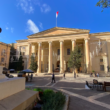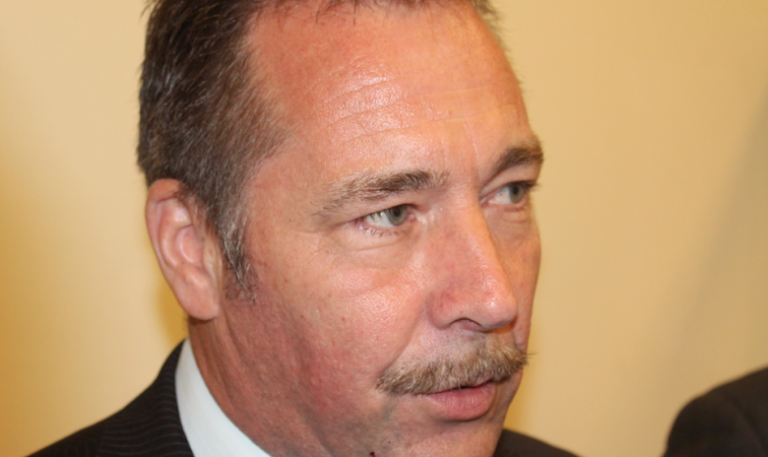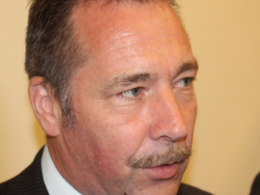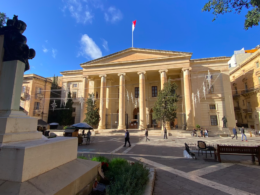The role of court-appointed experts is typically one of impartiality, grounded in technical expertise. However, new revelations surrounding Sam Sittlington, a financial crime consultant and court expert in the Vitals inquiries, suggest a troubling overlap between his judicial responsibilities and private ambitions. Sittlington’s controversial actions are now raising significant ethical questions about his conduct, and by extension, the integrity of the inquiry led by Magistrate Gabriella Vella.
Sittlington’s €1 Million Ambition
At the centre of the controversy is Sam Sittlington’s attempt to secure a €1 million direct order from Malta’s Financial Crime Investigation Department (FCID). It was career civil servant Alfred Camilleri, represented by his lawyers, who revealed this in a judicial letter filed in court. The letter alleges that Sittlington, while working on the Vitals magisterial inquiry, proposed a deal to the Malta Police Force worth a staggering €1 million. This consultancy bid, allegedly based on confidential information gained through his role in the inquiry, has sparked serious concerns over conflicts of interest.
In the judicial letter, Camilleri’s lawyers accused Sittlington of abusing his privileged access to sensitive information, drawing parallels to similar behaviour that led to his dismissal by the British Government in Guyana. The attempt to exploit his court-appointed position in Malta has intensified doubts about the ethical boundaries between Sittlington’s judicial role and his business interests.
Ethical Concerns and Magistrate Gabriella Vella’s Judgment
Sittlington’s actions also cast a shadow over the decision-making of Magistrate Gabriella Vella, who appointed him as an expert in the Vitals Commission. The role of a magistrate in such inquiries is to ensure that appointed experts are both technically competent and ethically sound. Sittlington’s conduct, however, now raises serious concerns about Vella’s judgment.
It is particularly concerning that Sittlington’s controversial past was already public knowledge. He was appointed in Malta in 2020, only a year after being dismissed from a similar position in Guyana, following reports of questionable business dealings and conflicts of interest. Given the availability of this information, it is perplexing why a figure with such a tainted history would be entrusted with a pivotal role in one of Malta’s most significant legal inquiries.
A Troubling History in Guyana
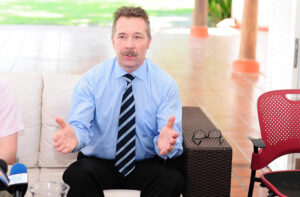
Sittlington’s dismissal by the British High Commission in Guyana should have served as a red flag. His tenure there was tainted by accusations of mixing his public duties with private interests. While tasked with anti-corruption work, he allegedly tried to secure business contracts for his private consultancy firm, leading to his eventual sacking.
This backstory, known before his appointment in Malta, casts a long shadow over his involvement in the Vitals inquiry. Given Malta’s fraught history of political corruption, Sittlington’s controversial past raises not only concerns about his fitness for the role but also broader issues about how court-appointed experts are vetted and monitored.
Where Does This Leave the Inquiry?
The Vitals case is seen as a litmus test for Malta’s judicial system, demonstrating whether the law applies equally to all, regardless of status. However, Sittlington’s involvement, combined with his €1 million consultancy bid, risks eroding public confidence in the inquiry’s fairness and independence. If Malta cannot ensure that court-appointed experts are free from conflicts of interest, what message does that send about the impartiality of its judicial process?
Sittlington’s attempt to capitalise on Maltese taxpayer funds raises a more fundamental issue: how does Malta prevent court experts from exploiting their roles for personal gain? This incident underscores the urgent need for reforms in appointing and monitoring court experts, ensuring strict ethical compliance and controls on unlimited use of public funds.
A Call for Scrutiny and Reform
Malta’s institutions are at a critical juncture. With trust in the country’s political and judicial systems already fragile, Sittlington’s actions only deepen concerns over transparency and accountability. His attempt to secure public funds for his consultancy—although unsuccessful—highlights a serious vulnerability in the system that must be addressed.
The time has come for Maltese citizens to demand greater scrutiny over the appointment and supervision of court experts. To restore faith in Malta’s institutions, we must ensure that those tasked with investigating our most critical legal cases are beyond reproach.
If you find these revelations concerning, now is the time to speak out. Share this article with friends and family, or send it to someone who cares about the integrity of Malta’s legal and political systems. The more awareness we create, the greater the chance for reform and accountability.


